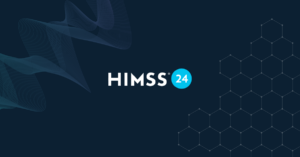A New York Times op-ed, The Health Data Conundrum, by Eric Topol and federal prosecutor Kathryn Haun, argues that patients should have full ownership of their medical records, especially during a time when data hacking is the new norm. The piece has received mixed reviews over the past week, most industry thought leaders believing it was a not well thought out response to a complex issue. In this week’s blog, our very own Virginia Long, PhD, Predictive Analytics Scientist, dissects the op-ed and the potential dangers from the suggestions Topol makes.
Personal healthcare records have been an exhausted discussion with healthcare. From data blocking to MACRA, there have been many challenges and opportunities to leverage health records to make more informed decisions around care and empower patients throughout their healthcare journey. The op-ed adds to this long discussed topic, but only touches the surface on patients owning their records. It’s an impractical solution to a wider-issue. Emphasizing data security as the main reason for patient-owned data isn’t a strong argument, in fact, there is no way to remove all security vulnerabilities.
Within the piece, Topol notes:
“Patients have shown an overwhelming willingness to share their information for altruistic reasons (which far exceeds the track record of doctors and health systems when it comes to sharing data).”
Unwillingness on the part of healthcare organizations is cited as a drawback to the current state of healthcare data ownership, however, personal ownership of data is not going to simply give patients the ability to share. In fact, when patients are able to “share” data for research they are actually just allowing the data which is collected, stored and kept securely by their provider to be used in research—they are not actually “owners” of the data. Many patients do not have the ability, resources or motivation to adequately edit their health record. A wholesale shift in responsibility of data from healthcare organizations to the individual is fraught with challenges. If there was a reasonable way to keep, maintain and share medical data in a reliable way, then this would be a great idea. However, it’s not realistic to propose that the answer to having secure and accurate data is by putting the responsibility through “ownership” in an individual patient’s hands.
While an individual’s access to their healthcare data is important, access and rights to sharing are quite different from “ownership.” Ownership connotes an individual’s responsibility for the data that I cannot see as a viable solution for most people. Indeed, patient ownership would likely be a sanguine change for health providers and plans by moving responsibility for data and data security out of their hands. It would be at best inconvenient and at worst dangerous, especially, when a patient’s lack of individual data affected care delivery. What happens when an individual is careless about updating their information or cannot give access to their healthcare practitioner because they are incapacitated or otherwise incapable? The idea of individuals owning their healthcare data would be akin to owning financial data. What would it look like to show up asking for a loan or line of credit with your “own financial data” that you had collected, curated and edited yourself. Additionally, writers of the op-ed declare that one of the ways that security of data can be maintained is to stop storing data in large databases. The alternatives are mind-bogglingly archaic. Record-keeping would be impossible without using a standardized data input method. Storage and retrieval from compatible systems, so that access could be granted for updating and data accurately read, would also be extremely difficult.
The argument around data ownership – including regulations, accessibility, etc. – will continue to be a topic of conversation in 2017. It’s a complex problem that calls for a complex answer. The op-ed highlights a potential solution, but doesn’t get down to the specifics. As the discussion around data sharing and ownership continues, let’s keep an open mind on ways to create strategies that cater to the various needs of stakeholders within the healthcare landscape.
For more insights on personal healthcare records, click here for research from the Journal of the American Medical Informatics Association. To hear more from Virginia and other MedeAnalytics experts, check out additional blog posts, here.
Get our take on industry trends
Optimize your revenue cycle for today’s challenges and tomorrow’s goals
In this dynamic LinkedIn Live discussion, Christine Stetler, BSN, RN and AVP of Solution Engineering at MedeAnalytics, unearthed strategies for…
Read on...Enhancing healthcare delivery with explainable AI: A methodological leap forward
Healthcare providers and payers continually seek methods to enhance patient care and operational efficiency. With the advent of complex data…
Read on...Another year, another great HIMSS!
HIMSS24 was a fantastic event, as always. One of our favorite additions this year was the Digital Health Technology Theme…
Read on...Optimize your midcycle for telehealth services
Telemedicine is now a permanent fixture in homes across America. A majority of healthcare organizations have established the technology necessary…
Read on...



